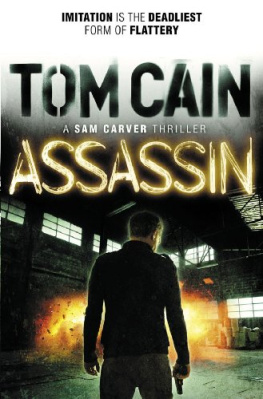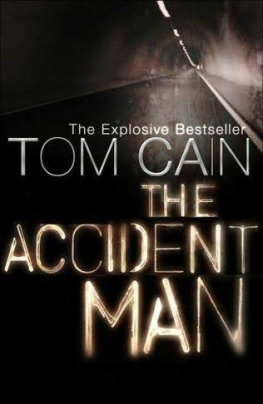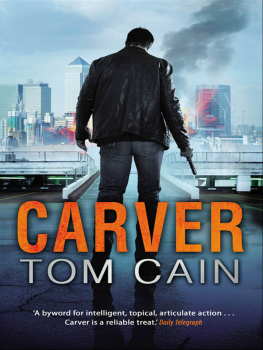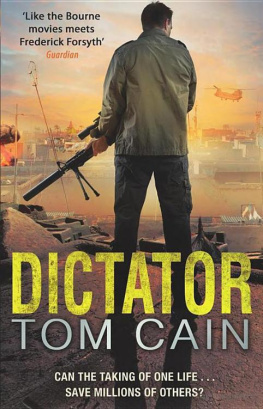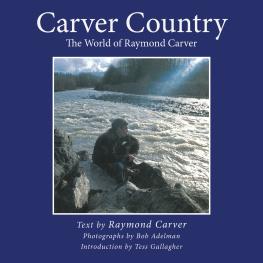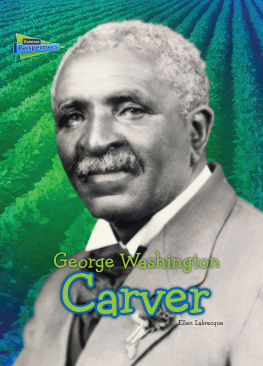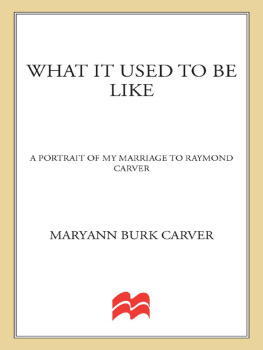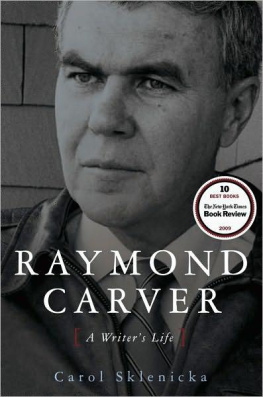
Tom Cain
No Survivors aka The Survivor
The second book in the Samuel Carver series, 2008
These Are the Facts
On September 6, 1997, the Princess of Wales was laid to rest on an island in the Oval Lake at Althorp, her ancestral home.
On September 7, 1997, General Alexander Lebed, former National Security Adviser to Russia s President Yeltsin, appeared on the prime-time American television news program 60 Minutes. He revealed that his government no longer knew the whereabouts of many of their small-scale nuclear weapons, commonly described as suitcase nukes.
More than a hundred weapons out of the supposed number of two hundred and fifty are not under the control of the armed forces of Russia, Lebed said. I dont know their location. I dont know whether they have been destroyed or whether they are stored or whether theyve been sold or stolen. I dont know.
On February 23, 1998, Osama bin Laden used the London-based newspaper Al-Quds Al-Arabi to issue a declaration of war against what he termed the crusader-Zionist alliance. Bin Laden declared, [The] crimes and sins committed by the Americans are a clear declaration of war on God, his messenger, and Muslims On that basis, and in compliance with Gods order, we issue the following fatwa to all Muslims: The ruling to kill the Americans and their allies-civilians and military-is an individual duty for every Muslim who can do it in any country in which it is possible to do it.
On October 20, 1999, the FBI released Project Megiddo, a long-term investigation into fundamentalist Christian cults who believe the year 2000 will usher in the end of the world and who are willing to perpetrate acts of violence to bring that end about. In its section on apocalyptic religious beliefs, it noted, Many extremists view themselves as religious martyrs who have a duty to initiate or take part in the coming battles against Satan. The report also commented, There is no consensus within Christianity regarding the specific date that the Apocalypse will occur. However, within many right-wing religious groups there is a uniform belief that the Apocalypse is approaching.
This much is true.
Everything and everyone else in this book is pure fiction.
The airport mechanic was a shade under six feet tall, and the body beneath his overalls and padded cold-weather vest was lean and athletic. The single line that bisected his strong, dark brow suggested a determined fixity of purpose, and his clear green eyes conveyed a calm, almost chilly intelligence. A woolen knitted cap covered his short brown hair. The lower part of his face was hidden behind a beard.
There was a badge on his chest. It gave his name as Steve Lundin.
The badge was fake. The mechanics real name was Samuel Carver.
No one in the hangar batted an eyelid when Carver unscrewed the hatch at the tail end of the executive jet and hauled himself up into the rear equipment bay for a standard preflight inspection.
This area was not reachable while the jet was airborne. It was simply a place filled with ugly but functional components, much like the basement of a building. Things like bundles of wires linking the planes electronic circuits, the cables and hydraulic lines that controlled the rudder and elevators, the accumulator holding the hydraulic fluid that got pumped out through the system, the pipes that carried super-heated, high-pressure air off the engines and sent it for use in the planes cabin heating system. None of these things were much to look at, or remotely exciting, until, of course, they went wrong.
The air pipes were what interested Carver. They were covered in thick silver-colored cladding, held with plastic clips, and they formed a network through the plane via valves and junctions, pretty much like a domestic water system. So he messed with the plumbing, loosening one of the junctions so that the hot air would leak from it. The junction in question was barely a hands breadth away from the hydraulic accumulator.
By the time Carver closed the equipment bay hatch and walked away, the fate of the aircraft was sealed.
There was a TV on in the passenger lounge, the CNN reporter having a hard time holding back his tears as he stood in front of a blackened, burned-out church.
We cant show you what it looks like inside the smoking charnel house behind me, he said, an undertone of barely restrained passion coloring his lyrical Irish brogue. The scenes are too appalling, too sickening. The charred and mutilated corpses of four hundred innocent women and children lie in there. The scent of their burned flesh fills the air all around.
While Western politicians turn their eyes away from this insignificant corner of West Africa, a ten-year civil war has descended into genocide. The rebel forces mounting this ruthless campaign are better-trained and equipped than ever before. Their leaders are showing levels of organization and strategic planning far ahead of anything they have displayed before. Somehow, somewhere, these merciless killers have acquired new resources, new expertise. And so, as the villages few survivors search among the corpses for their loved ones, one question comes inevitably to mind: Who is backing the rebels? For whoever they are, and whatever their motivation, they have the blood of an entire people on their hands.
Shit, this boys a friggin comedian!
Waylon McCabe slapped a hand against his thigh as he addressed the three other men in the room. Most of the time McCabes eyes were cold, narrow slits in wrinkled folds of leathery skin that seemed permanently screwed up against the glare of his native Texan sun. Now he was letting his guard down, opening up a little, taking it easy with his buddies.
Man, I swear hes about to cry, just to show how sensitive he is. But Ill bet he dont care about a bunch of dead niggers, any more n I do. Hes just in it for hisself, thinkin on the prizes hes gonna git for being such a damn humanitarian hell, he might make almost as much money outta this war as me.
I seriously doubt that, boss, said one of the other men, swigging from a bottle of Molson Canadian.
Well, I don know, Clete, replied McCabe with a grin. Sure, my diamondsll pay better. But you gotta consider the costs. He aint had to ante up for guns n ammo, instructors to train them native boys Here, throw me one of them beers afore I die of thirst.
McCabe was a long way past sixty, but for all the lines on his face, he was still tougher and possessed of more energy than most men half his age. He had spent the past three days on the northern coast of the Yukon and Northwest territories. From there on up to the North Pole it was pretty much just ice. Now he was sitting in a private room in the terminal at Mike Zubko Airport, right outside the town of Inuvik, waiting on the plane that would take him home.
He was trying to decide whether to pursue his hunch that there were significant oil deposits in the region. The major corporations had all pulled out of the area. Oil was cheap, extraction would be expensive, and the local Eskimos-Waylon McCabe was damned if hed call them Inuits; screw them if they felt offended-were getting uppity about their tribal lands getting despoiled. The way they saw it, the upside wasnt worth the aggravation.
McCabe, however, looked around the world at where all the oil was, and where all the trouble was, and saw they were all pretty much the same places. Sooner or later, between the towel heads in the Middle East and the Commies down in South America, supplies would be threatened. Meanwhile, there were billions of Chinese and Indians buying automobiles and building factories, so demand could only go up. High demand and insecure supply would mean rocketing prices, and fields that were only marginal now would become worth exploiting. At that point, who gave a damn what a bunch of seal hunters thought? A few bucks in the right pockets and that problem would be solved. And anyone who refused to take the money would soon find out theyd made the wrong decision.
Next page


